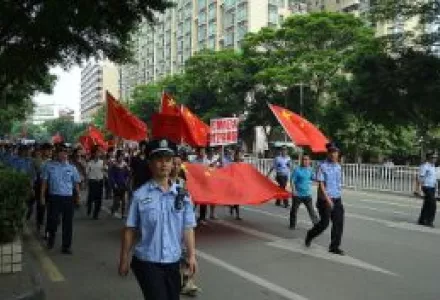Rational Nationalism on the Rise: The Origins and Consequences of Chinese Nationalistic Protest
This seminar will examine Chinese nationalism and foreign relations on three levels: first, when protest will arise in response to an international incident; second, what explains Chinese official response to nationalism based on signaling and concerns of domestic stability; and, finally, why outside states will change their behavior or policies in response to nationalistic protest in China.
Please join us! Coffee and tea provided. Everyone is welcome, but admittance will be on a first come–first served basis.




